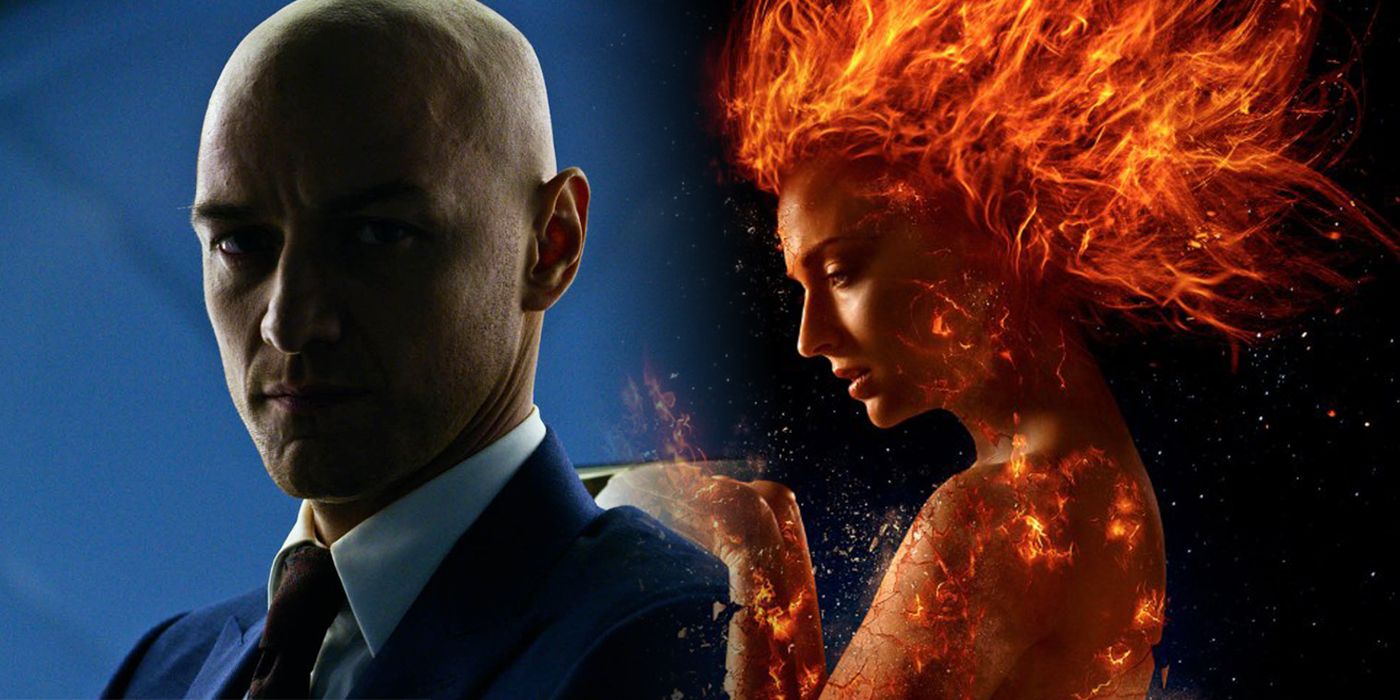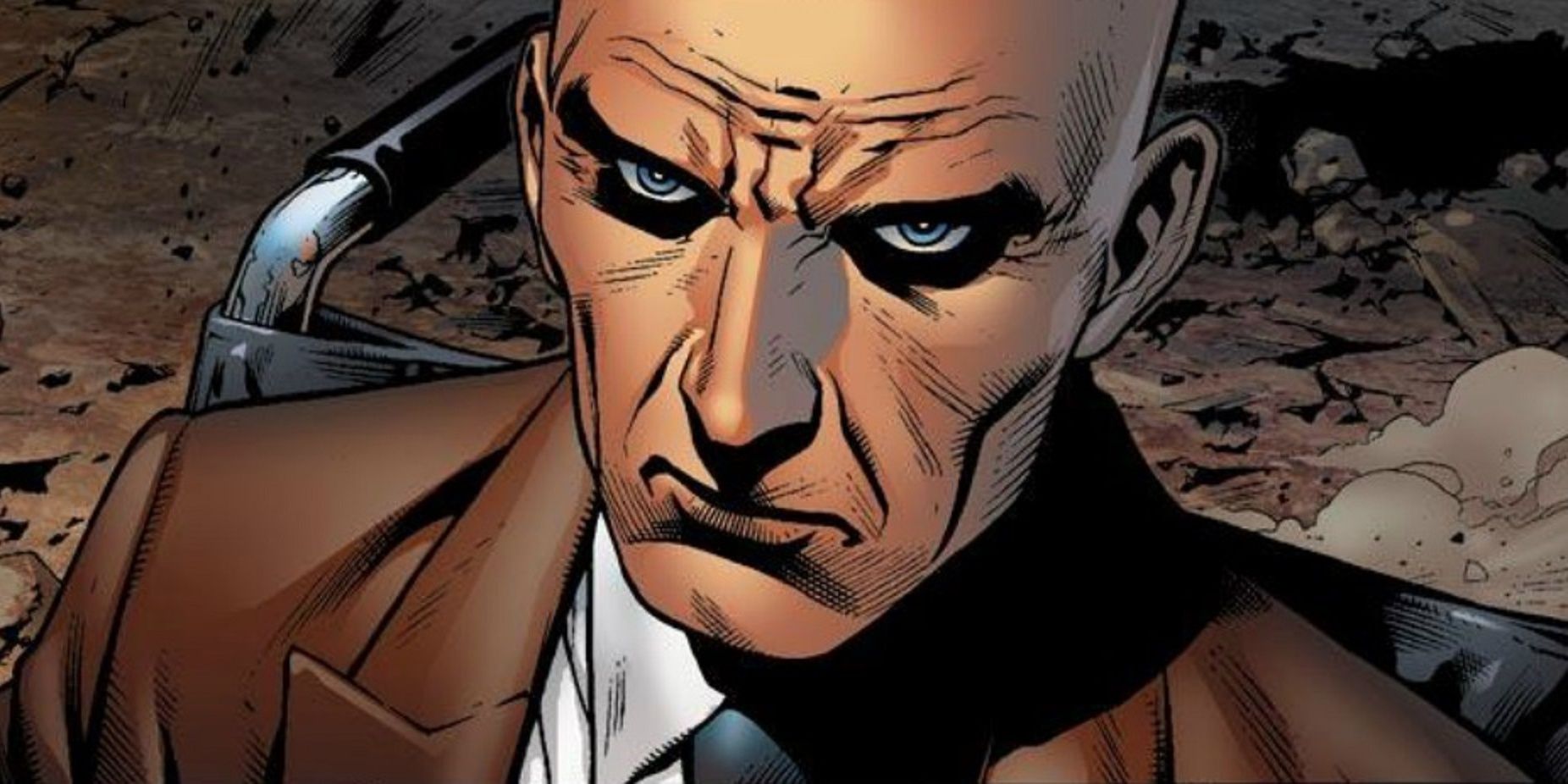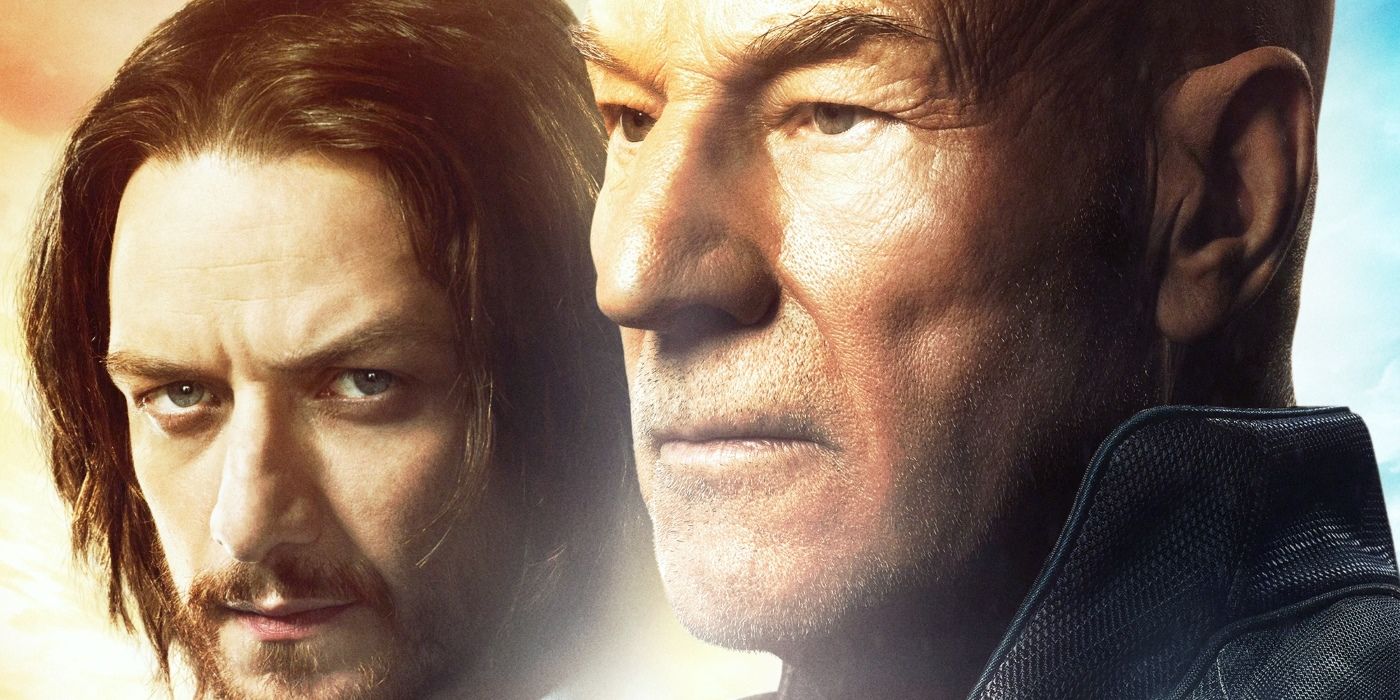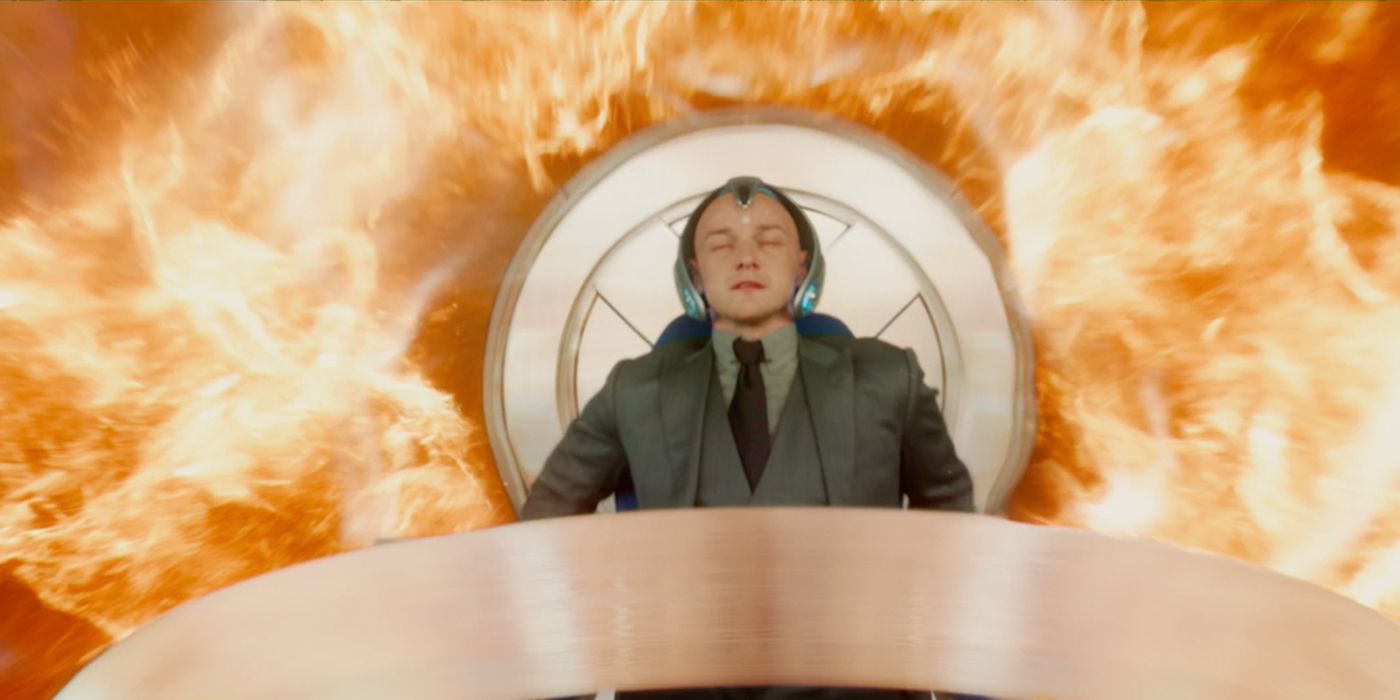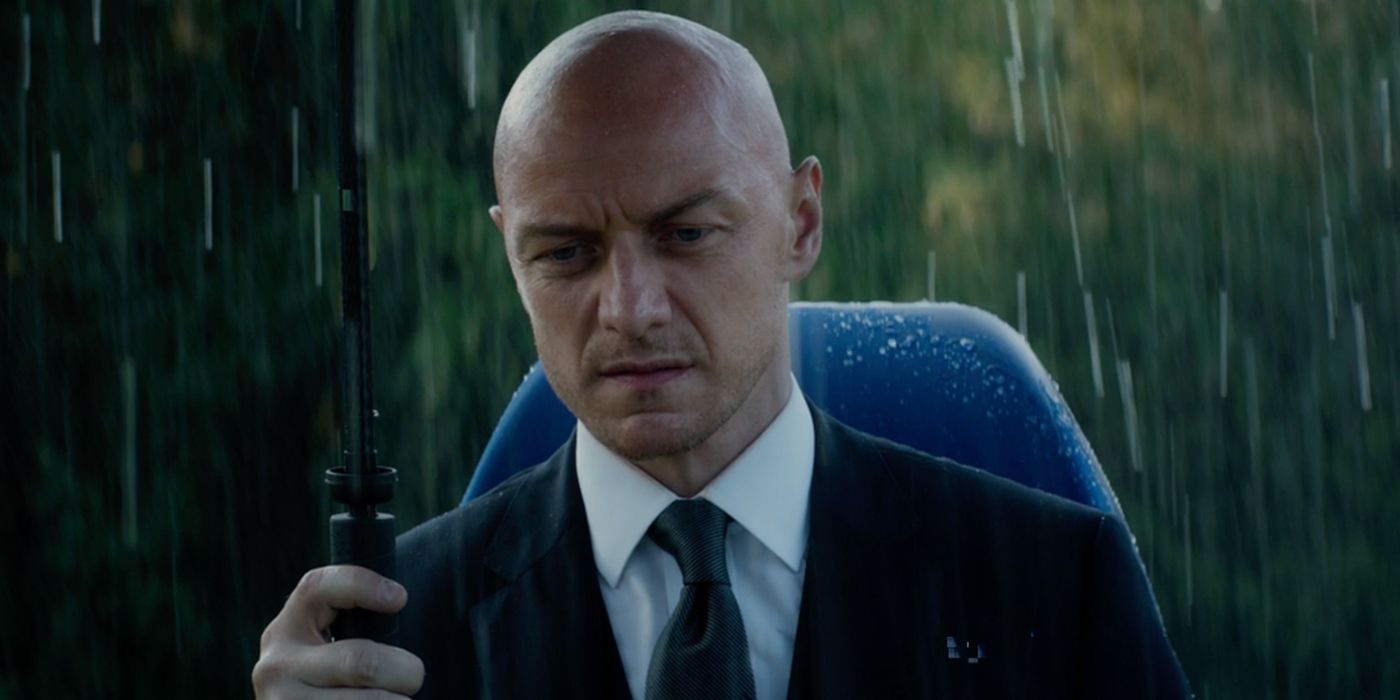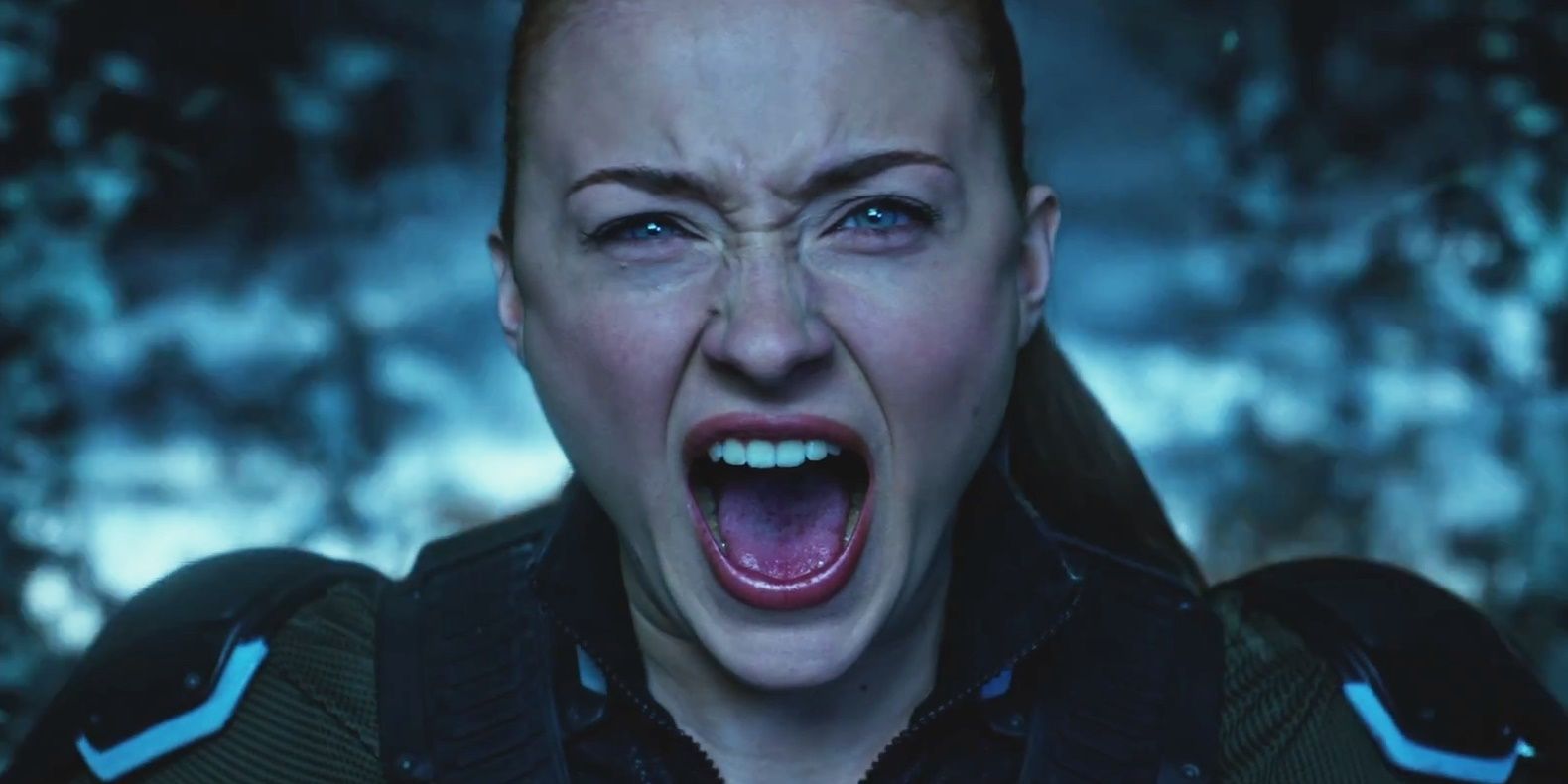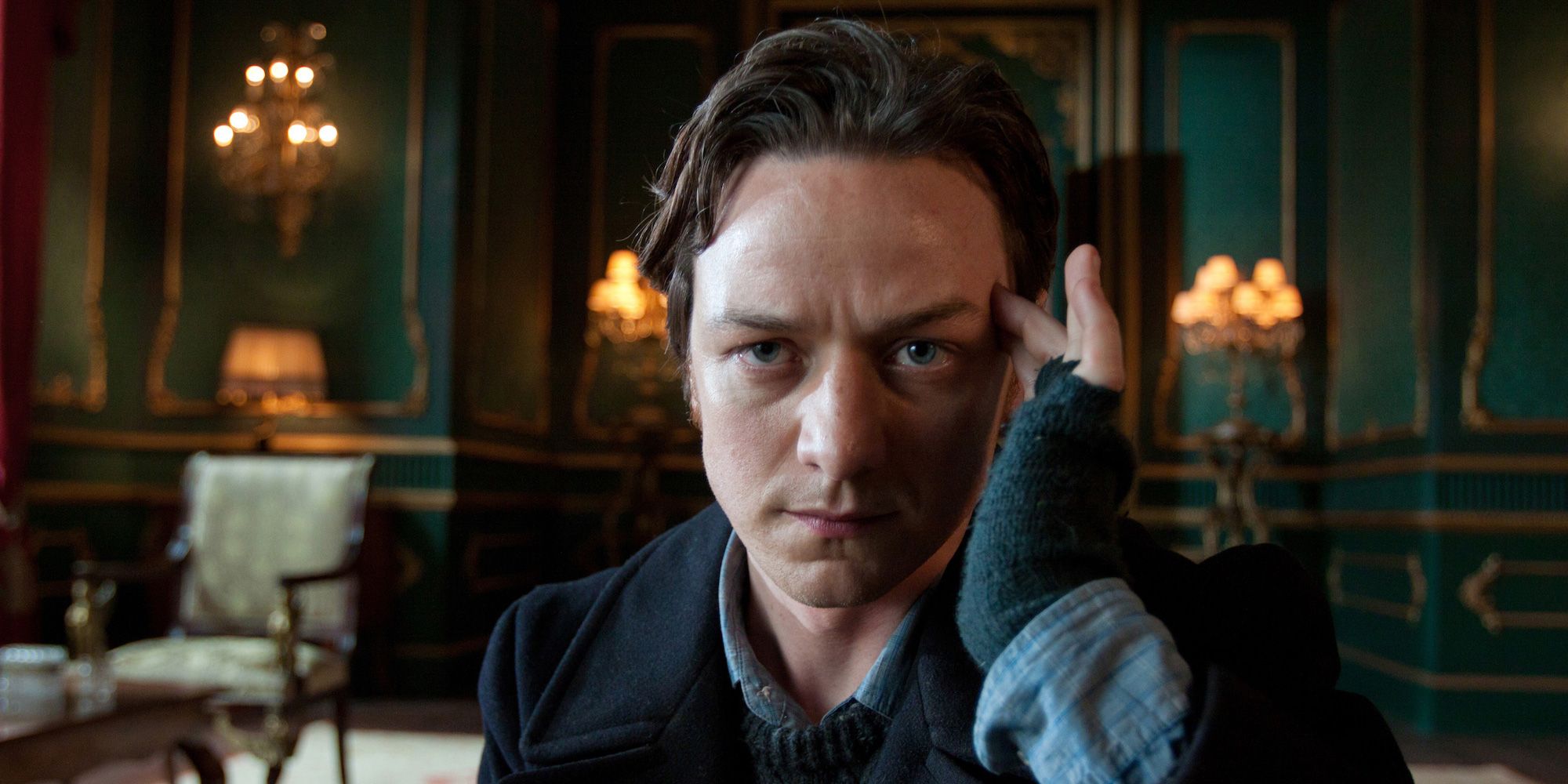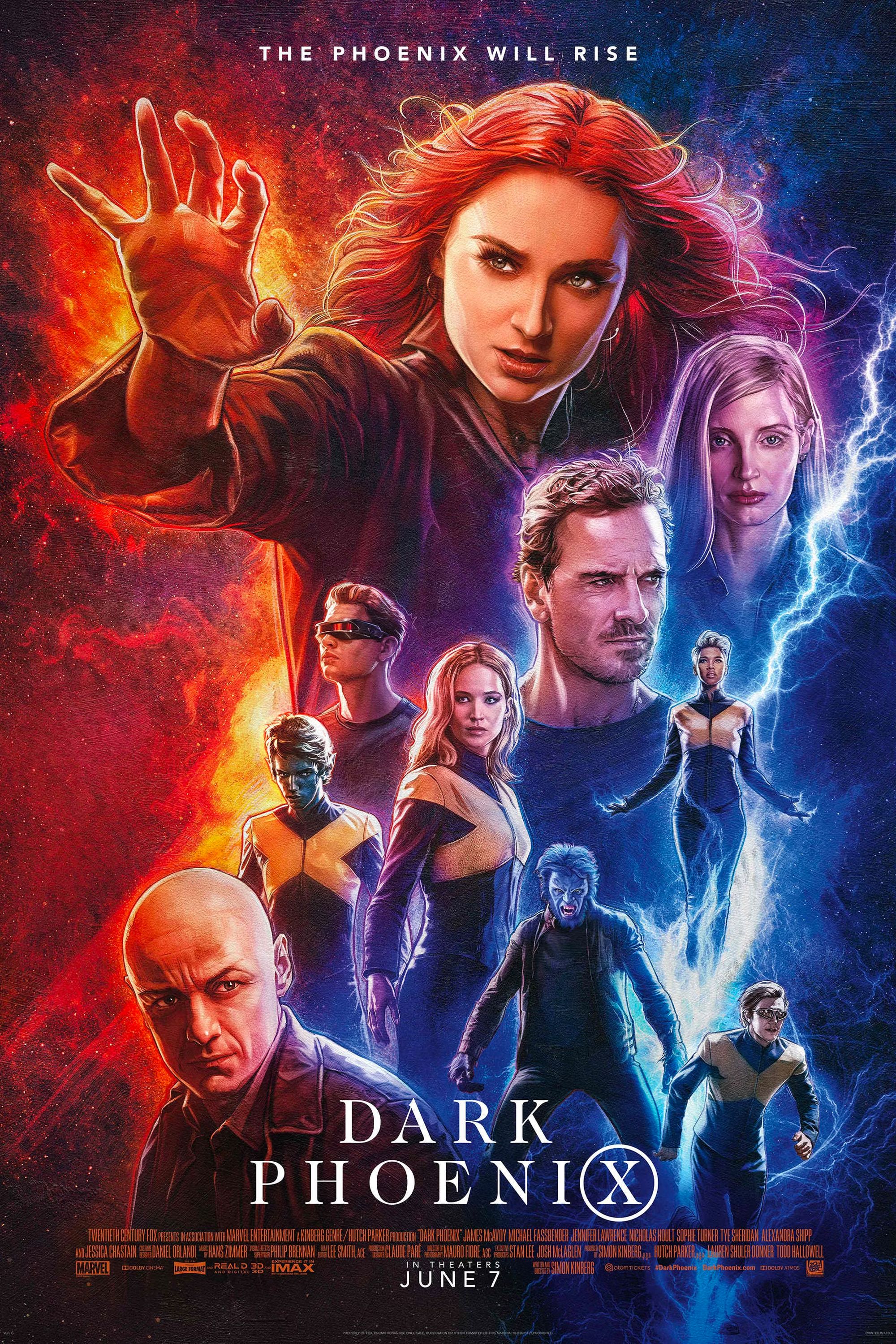Charles Xavier is the founder of the X-Men, but is he really a hero at all? That's one of the most ominous questions asked ahead of Dark Phoenix, which suggests that Jean's descent into madness is ultimately a consequence of Xavier's own meddling with her mind.
According to the trailer for Dark Phoenix, an early manifestation of Jean Grey's powers caused the car crash that killed her parents. When Jean came to Xavier, she was scarred and broken. Sensing her nascent power, Xavier decided that he had to keep her stable. The trailer is unclear as to just what lengths Xavier went to in order to achieve that goal. At the least, he used his own telepathy to repress her pain and grief. At the worst, he adjusted Jean's memories... denying her the knowledge that she was responsible for the accident.
Magneto is clearly unimpressed when he learns what Xavier has done, declaring in the trailer's final moments that "you're always sorry, Charles. And there's always a speech. And nobody cares." This seems an opportune time to ask: in light of his mistakes and excesses, should Charles Xavier be viewed as a hero? Or will Dark Phoenix's portrayal of Xavier finally make him as complicated as his comic book counterpart.
- This Page: Xavier's Dream Is Noble - But Is Xavier?
- Page 2: Charles Xavier's Ego & Power Trips
- Page 3: Xavier's Darkest Mutant Secret
Xavier's Dream Is Noble - But That Doesn't Mean Xavier Himself Is
There's a certain resistance among comic book readers to the idea that Xavier is flawed, largely because of the purity of Xavier's Dream, the cause around which the X-Men have gathered. Charles Xavier is a prophet who points the way to a Promised Land of tolerance and equality, where man and mutant live side-by-side in peace. That dream is a powerful one, in large part because it's a symbol of the real-world battle for equality.
Related: X-Men: Dark Phoenix Trailer Breakdown - 47 Story Reveals & Secrets You Missed
While that's often been a very clear subtext - most notably in Chris Claremont's classic X-Men: God Loves, Man Kills graphic novel - at times Marvel has made it explicit. In Uncanny X-Men #294, Xavier held a sort of peace concert, and delivered a powerful speech to an unreceptive crowd.
"This concert is about embracing our uniqueness -- the color of a man's skin, the choice of whom we love, the right for your neighbor to pursue his individual religious observance... No amount of words -- of derision, distrust, or disinformation -- can change the truth that each one of us - man, woman, black, Hispanic, Jew, Native American, homosexual, mutant, everyone - underneath all the "words" we are related. We are family."
That statement is probably the most explicit declaration of Xavier's Dream that the comics have ever presented. It explains just why Charles Xavier is so important; because he stands for something greater than himself. The greatest superheroes are symbols of concepts and ideologies; Spider-Man stands for power and responsibility, Captain America for the nobility of the nation America can be, the Fantastic Four for family. Xavier is often compared to Martin Luther King, a dreamer who cast a vision of equality.
Oddly enough, the comics themselves seem to have forgotten this. Writer Grant Morrison abandoned the idea that mutants and humans were the same race, instead having even the heroes treat them as evolutionary competitors, and the comics have never really managed to get back on their feet since. That pattern has bled through into the movies too. In X-Men: First Class, it's the young Charles Xavier who first suggests that humans and mutants will go to war. "To Homo Neanderthalensis," he wrote in his dissertation, "his mutant cousin, Homo Sapiens, was an aberration. Peaceful cohabitation, if it ever existed, was short-lived. Records show, without exception, that the arrival of the mutated human species in any region was followed by the immediate extinction of their less-evolved kin."
It's a far cry from Xavier's Dream, and Xavier's thesis even became part of Trask's case for his Sentinel program in X-Men: Days of Future Past. The films have never quite understood whether or not the X-Men are fighting for equality, or simply trying to avert mutual extinction. It's probably because Charles Xavier the Dreamer feels too simple and pure a character. But that's a mistake; it's true that the Xavier of the original X-Men comics had dedicated himself to a noble cause, but he is not the personification of that cause.
The best comic book writers have always carefully shone a critical lens upon him, suggesting that he is a flawed and fallible human being. And it looks as though Dark Phoenix will seek to do the same.
Page 2 of 3: Charles Xavier's Famous Ego & Power Trips
Of Telepaths and Ego-Fueled Power Trips
In order to truly understand Charles Xavier, we first have to understand his powers - because they fundamentally shape every aspect of his life. Professor Xavier is an Omega-Level telepath, one of the most powerful mutants in the world. There seems to be no limit to the extent of his abilities; once he's seen a psychic feat performed by another mutant, he's been able to effortlessly mimic it. Xavier can dip into the minds of all those around him with ease, reading their thoughts, nudging their ideas, manipulating their memories. It's a phenomenal power.
It's also a very dangerous one. Telepaths who possess power on Xavier's scale are essentially gods among men, removed from the world around them, manipulating others with ease. We clearly see that in X-Men: First Class. When we're introduced to James McAvoy's Charles Xavier, he's completely isolated with only Mystique for a friend. The young Charles Xavier used his powers to chat up girls in pubs, knowing exactly what to say to charm them, and perhaps even nudging their perceptions.
For all his moralizing, he invaded minds at a whim, with scant regard for the invasions of privacy he was carrying out. That's clearest in his relationship with Moira MacTaggert; he easily erased her memories, sealing the act of betrayal with a gentle kiss.
This portrayal isn't unique to the movies, either. The comics always portrayed the Professor as something of a taskmaster and a control freak - to the extent that Xavier has famously been described as a "jerk." When Rogue came to the X-Men for help, he delivered a disturbingly harsh speech in which he cautioned her that she must prove herself "worthy" of redemption. It was hard not to see Xavier as a God-like figure casting judgment upon the troubled teenager. The Original Sin event revealed that even Wolverine had been the victim of Xavier's manipulations; it turned out that Logan had originally been sent to assassinate the Professor, but Xavier rewrote his mind to turn him into an X-Men candidate instead.
Related: All The Evidence [SPOILER] Dies In X-Men: Dark Phoenix
Charles maintained the pretense he was trying to help Logan regain his memories for decades, when the truth was far more complex. Most chilling of all, the Deadly Genesis miniseries revealed that the Professor erased all memory of an entire team of X-Men who died fighting on his behalf. The reason? One of them was Cyclops's brother, Vulcan, and he needed Scott Summers to be back on fighting form. It was easier for Xavier to wipe Scott's memories of his own brother than to help his student through his grief.
Xavier Gets Afraid, Too
Here's the irony: Charles Xavier's greatest abuses are the moments when he reacts with fear, unwittingly acting against everything he claims to believe in. In both the comics and the movies, Charles Xavier has encountered mutants whose powers far outstrip his own. The trailer for Dark Phoenix makes it abundantly clear that Jean Grey is one of those mutant threats. Xavier sensed the almost-limitless potential that lay within the orphan, and realized that her pain and grief over her parents' death meant she was close to going out of control. He supressed her emotions, and the trailer even hints that he erased the memory that Jean had caused her own parents' deaths.
The reason, quite clearly, is that Xavier was afraid. This idea is lifted straight from the comics, where the Professor decided Jean's powers were emerging in a way he couldn't control, and so he used his telepathy to lock them up deep within her mind. The All-New X-Men comics have revealed that Xavier permanently distorted the way Jean's powers would develop as a consequence.
In the comics, Jean Grey isn't the only one who's fallen victim to Xavier's fears. One of the most disturbing arcs in recent years was The Last Will and Testament of Charles Xavier, set after the Professor's death. The story revealed one of Xavier's darkest secrets, and the... control he exerted on one mutant child. A decision that proves Dark Phoenix can go a long way in showing Xavier as flawed, whilst still pointing to the comics as the basis for the story.
Page 3 of 3: Charles Xavier's Darkest Secret
Professor X Fears Mutants of Power
The Last Will and Testament of Charles Xavier reveals that years ago, Xavier had discovered a powerful mutant named Matthew Malloy whose ability to restructure reality was beyond anything he had ever seen. The first flare of Matthew's powers had killed his own parents. Too young to fully process his emotions, Matthew played on the front lawn with his toys, discharging wave after wave of energy. The Professor decided Matthew was too volatile, too powerful. He earned the boy's trust, and then erected barriers within his mind to lock off his powers, erasing all memory of the lives he had taken and the destruction he had caused. Xavier visited Matthew periodically throughout his life, carefully reinforcing those barriers - until, of course, the Professor died. Nobody knew about Matthew, the barriers crumbled, and his powers flared out of control once again.
The cases of Jean Grey and Matthew Malloy are disturbingly similar. In both instances, Xavier encountered a mutant more powerful than himself, and he reacted out of fear, using his own powers to exert control. He had his reasons, he could justify his actions to himself, but in both cases he was unwittingly acting against everything he claimed to believe in.
Related: Dark Phoenix NYCC Footage Description: How Jean Grey Becomes Phoenix
Curiously enough, there's a common thread running through many of Xavier's worst actions, whether in the comics or indeed in the trailer for X-Men: Dark Phoenix. He seems absolutely incapable of dealing with grief. It's easier for Charles to erase Cyclops's memories of his brother than to help him deal with his loss. And it comes more naturally for the Professor to rewrite the powers and even the memories of Jean Grey and Matthew Malloy than it does for him to let them heal naturally. Perhaps the issue is that, as a telepath, he senses the raw, unrestrained pain of grief in others, and flinches from it. That, married to powers beyond anything even Xavier can conceive of, scares him.
Viewing Xavier Through A Critical Lens
Earlier, we suggested that - at best - Xavier should be viewed as a prophet who points the way to a Promised Land of tolerance and equality, where man and mutant live side-by-side in peace. But here's the thing about prophets; their vision of the future is always one that they themselves are unworthy of. Indeed, to return to that metaphor, Moses himself did not attain to the Promised Land he spoke of to his people. The best comic book writers have understood that truth and applied it to Charles Xavier, revealing his hidden flaws and secret sins, exploring his power trips and control freak-ery. In doing so, they've shone a light upon the complexity of Xavier's Dream, the fact that it speaks against human nature itself - indeed, against even Professor Xavier's own nature. Prejudice is easy, and natural; in a fictional world of mutants, where a teenager has the power to destroy a town in a fit of anger, fear is understandable. The Dream calls for people to confront their own fears, their own prejudices and hatreds, and to put it aside. It presents that challenge to Charles Xavier himself.
So far, the X-Men movies haven't really done too good a job of exploring the implications and challenges of Xavier's Dream. But it's entirely possible that Dark Phoenix will change that; that the film will cast a critical eye upon Xavier, and in so doing challenge his students to truly decide whether this Dream is worth fighting and even dying for.
One thing is for certain, though. The movie will confront the X-Men with the truth that their Professor is a flawed man, more complex than any simple superhero. Hopefully that will be as exciting to watch unfold on film as it is in the comics.

